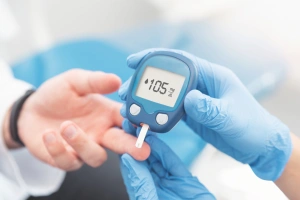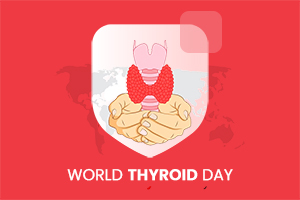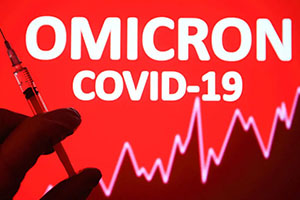

- Tax BenefitUp to 75000**
- Claim SupportEveryday 10AM-7PM
- 45 Lacs+Happy Customers
*Standard Terms and Conditions Apply.
**Tax benefits are subject to changes in Income Tax Act.
Bone marrow transplant is a medical procedure performed to infuse health blood-forming stem cells into the body by replacing the damaged or diseased bone marrow. Also known as stem cell transplant, bone marrow transplant can be required by anyone whose bone marrow stops working and becomes incapable of producing enough healthy blood cells. There are two types of bone marrow transplants namely autologous transplant and allogeneic transplant. The former is when the cells are used from their own body, whereas the latter is when the cells are used from a donor’s body. The type used depends on the reason why anyone needs a bone marrow transplant.
Bone Marrow Transplant
Health Insurance Plans That Cover Bone Marrow Transplant
Treatment of bone marrow transplant can cripple anyone’s financial situation and put the entire family under stress. To avoid such a situation, a reliable critical illness insurance policy can be purchased. A critical illness policy for bone marrow transplant helps you when you are in dire need of financial help. There are several critical illness insurance policies available at InsuranceDekho that cover expenses related to bone marrow transplant. A few to name are HDFC Ergo’s (formerly known as Apollo Munich) Health Optima Vital Plan, HDFC Ergo Critical Illness Policy, Edelweiss Criticare+ Plan, and ManipalCIgna Lifestyle Protection Critical Care Plan. All of these health insurance policies come at an affordable premium and can be purchased online at InsuranceDekho within a few minutes without any hassle.
A bone marrow transplant can be used to:
- Replace damaged or diseased bone marrow with new stem cells
- Safely allow treatment of the health condition with chemotherapy or radiation by replacing or rescuing the damaged bone marrow due to treatment
- Provide new stem cells to kill cancer cells directly
Bone marrow transplant helps people with several malignant and benign diseases that include the following:
- Acute leukemia
- Adrenoleukodystrophy
- Hemoglobinopathies
- Aplastic anemia
- Bone marrow failure syndromes
- Immune deficiencies
- Inborn errors of metabolism
- Chronic leukemia
- Hodgkin's lymphoma
- Multiple myeloma
- Plasma cell disorders
- POEMS syndrome
- Myelodysplastic syndromes
- Non-Hodgkin's lymphoma
- Neuroblastoma
- Primary amyloidosis
How a Bone Marrow Transplant Is Performed?
A person will undergo a bone marrow transplant only when his/her doctor thinks they can. The process is similar to a blood transfusion. In case someone has an allogeneic transplant, then the bone marrow cells will be transplanted from the donor a day or two before the procedure. If the person’s own cells are being used, then they will be retrieved from the stem cell bank.
Cells can be collected in two ways:
- The cells are collected from both hip bones through a needle. The patient is under anaesthesia for this procedure. This means he/she will be asleep and not feel any pain.
- The second way is leukapheresis. During leukapheresis, the donor is given 5 shots so that the stem cells can be moved from the bone marrow into the bloodstream. Then the blood is drawn through an IV (intravenous) line. A machine separates the white blood cells that contain the stem cells. A needle called central venous catheter or a port is then installed on the upper right portion of the patient’s chest that allows the fluid containing new stem cells to flow into the heart directly. The cells then disperse to the entire body thereby running through the blood and into the bone marrow. The cells will start growing once they establish there. The port is left in place as it takes multiple sessions undergone over a few days. Through the port, the patient will also receive blood transfusions, nutrients, as well as liquids. Medications too may be required too as they can help the new bone marrow grow. All of it depends on how well the patient handles the treatment. he/she will be closely monitored during the treatment.
What Happens After a Bone Marrow Transplant?
When the new stem cells grow in the patient’s body, then they travel through the blood to the bone marrow. They multiply and start producing new and healthy blood cells. The process is known as engraftment. Usually, it takes a few weeks before the number of blood cells in the patient’s body starts returning to normal, but it may differ from person to person.
As discussed earlier, the success of a bone marrow transplant primarily depends on how closely the recipient, as well as the donor, match genetically. Sometimes, it can be hard to find a good match.
Typically, it takes around 3 months to recover after a bone marrow transplant. However, it may also take a year to recover completely. There are various factors on which recovery depends. These are:
- Chemotherapy
- Radiation
- The condition being treated
- Donor match
- Where the transplant is performed
It is possible that some symptoms that the patient experiences remain with him/her for a lifetime.
Why Buy Health Insurance for Bone Marrow Transplant Online at InsuranceDekho?
InsuranceDekho offers a quick, smooth, and transparent process of buying critical illness insurance policies. At InsuranceDekho, one can purchase health insurance for bone marrow transplants without any paperwork. Other benefits that you can avail are listed below:
- Quick policy issuance
- Multiple quotes from popular health insurers for bone marrow transplant
- Flexible payment modes offered
- Post policy purchase assistance
- Help from knowledgeable customer care executives at the time of purchasing a policy
- Assistance during filing a claim
- Online premium calculator available to get an estimate of health insurance premium even before purchasing
Health Insurance Calculator
Whom do you want the insurance for ?
Where do you live ?
Choose required Coverage for yourself?
Health Insurance Coverage Calculator
Who do you want to insured ?
- Individual
- Couple
- Family
- Parents
Age of eldest insured member ?
Where do you live ?

*Tax benefits are subject to changes in Income Tax Act.























.jpg)

































